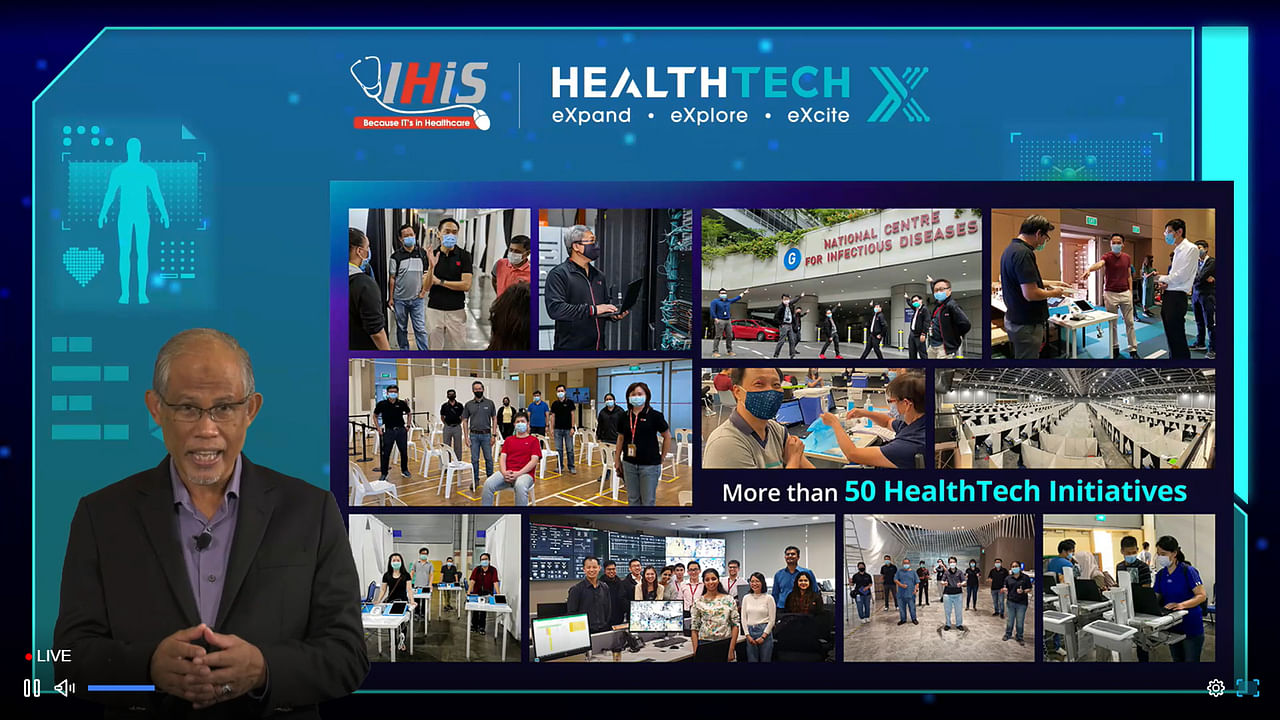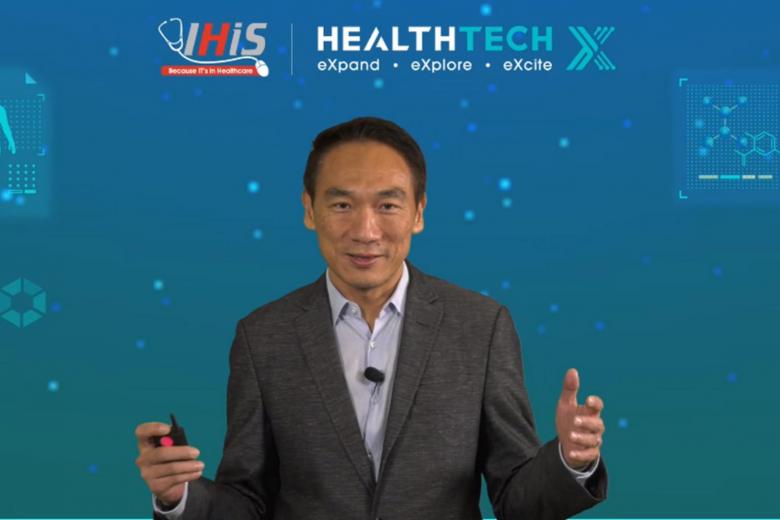SINGAPORE - The Covid-19 pandemic has brought the use of technology in healthcare into sharp focus, and further efforts in digitalisation will go a long way in building a future-proof healthcare system.
A critical component of this is data sharing - and more needs to be done in this aspect, while protecting patients' privacy.
Digital solutions can also bring new efficiencies to providing care, and jobs may also need to be redesigned accordingly.
These were some perspectives shared on Tuesday (Oct 12) at HealthTech X, a two-day virtual event that focuses on how technology can be used to improve the health of the entire population.
Organised by the Government's healthtech agency, Integrated Health Information Systems (IHiS), the forum features speakers from here and overseas.
IHiS chief executive Bruce Liang said that the healthtech solutions put in place over the last decade have paid off in this pandemic.
This enabled PCR test and vaccination updates to flow "almost real-time" across systems used by individuals and healthcare providers, he added.
These systems include apps such as HealthHub and TraceTogether, and the web-based Patient Risk Profile Portal, which lets general practitioners access patients' Covid-19-related electronic records.
Covid-19 data was also updated in real-time to the National Electronic Health Record (NEHR) database that collates patient data across different clinics, therapy centres and hospitals.
Singapore's NEHR is a centralised system giving doctors access to data on patients who may have been treated elsewhere. It gives a complete picture of a patient's medical condition, and could save lives in emergency situations.
The public players are on board, but the private sector and voluntary welfare organisations need to "step up", said Mr Liang.
This is because future healthcare in Singapore will require greater participation from everyone, in order to ensure the best use of resources such as hospital services.
Unlike the traditional model of episodic, practice-centric treatment-based care that focuses on one person at a time, population health is about enabling people to care for themselves, which is impossible without technology, said Mr Liang.
Population health is also about influencing patients to adopt health-seeking behaviour and helping care teams to adopt different programmes for different patients, added Mr Liang.
Second Minister for Health Masagos Zulkifli said in his opening address that Singapore needs to go beyond switching from pen and paper to electronic record-keeping.
"It requires a fundamental shift in the way we rethink our processes. Where we can, we should streamline our processes. This may mean using more efficient digital alternatives, without compromising quality; reskilling our workforce; and redesigning jobs," he said.
"This will enable our care professionals to focus on the most important part of their work - direct patient care."
Tech can also help to identify patient risk factors, which would enable general practitioners to play a bigger role in the prevention of chronic diseases, added Mr Zulkifli.
The National Diabetes Dashboard of consolidated patient data is being used to develop predictive models using artificial intelligence that can identify diabetic patients at risk of kidney failure, for instance.
"We will also make this information available to our primary-care practitioners through our National Electronic Health Record system, enabling them to deliver more personalised care to diabetic patients," said Mr Zulkifli.

Electronic health record data includes lists of each patient's medications, allergies and care plans. But it is necessary in population health management to also gather other sources of data to get a fuller picture of the patient's health, in order to help him prevent or manage chronic diseases.
With so much information also coming from wearable devices, where you live, what you eat, doctors' notes and reports and so on, the question is how to use all the info gathered in a "privacy protecting and ethical fashion", said keynote speaker, Dr John Halamka president of the United States-based Mayo Clinic Platform. The platform is an initiative to improve health care through insights and knowledge derived from data.
Dr Halamka, who joined Mayo Clinic early last year and is leading its digital transformation, said the first task was to de-identify the structured data stored in its healthcare system for decades.
Technology such as machine learning can be used to remove the proper nouns that might refer to job role, familial relationships or geography, so that the patient cannot be identified, he added.
To a question from the audience on how data gathering should be balanced with ensuring privacy, Dr Halamka said that each patient will have their own preferences. Information such as a substance abuse history, for instance, may be more sensitive.
"Mayo Clinic, over the last year, has been working on a novel consent that gives patients... five different choices that help them qualify what data can be used for what purpose."


